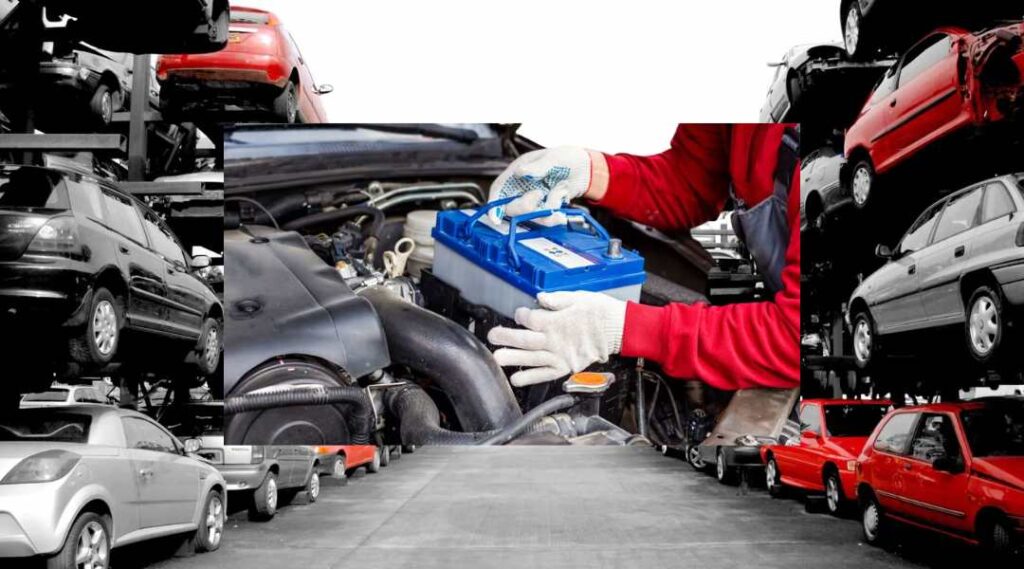
As Canada moves forward towards a greener future – it is essential to recycle car batteries in Canada for sustainable and environmental awareness. Proper handling of both traditional lead-acid batteries and advanced electric vehicle (EV) batteries is necessary – not just safeguard the environment but also aid in retrieving valuable resources for reuse, thus boosting a circular economy.
The Need for Old Battery Recycling
Every year, Canadian roads have millions of vehicles that depend on batteries to operate their engines and electronics. Electric vehicle (EV) sales are increasing exponentially, and the shift to EVs is rushing. In 2024, approximately 20% of new vehicles purchased in Canada were electric, consisting of hybrids, plug-in hybrids, and electric cars. As the request for batteries increases – it becomes increasingly important to have effective old battery recycling methods.
Recycling Traditional Car Batteries
If not disposed of appropriately, conventional automobile batteries – which are composed of lead and sulfuric acid – are regarded as hazardous trash. Nonetheless, in Canada, more than 95% of lead-acid batteries are recycled annually. Effective recycling initiatives and laws that put environmental safety first have made this high recycling rate possible.
Where to recycle car batteries for cash:
Many automotive lead acid auto battery recycling companies, shops scrap metal facilities, and battery retailers provide options for returning lead-acid batteries. These sites have been approved to manage and recycle dangerous substances in a secure manner.
How it works:
The process at the recycling involves breaking down batteries to separate and melt lead, which is then reused in new batteries. The recycling used lead-acid auto batteries are neutralized and transformed into a non-harmful substance, as the plastic casing is reused for different manufacturing purposes.
Recycling EV Batteries
As electric vehicles are rising in the modern world. It brought both challenges and opportunities for the recycling faculties. EV batteries are made up of lithium-ion cells, and recycling them is onerous than traditional car batteries.
Basics of EV batteries recycling
Electric cars operate using lithium-ion batteries, composed of crucial metals like lithium, cobalt, and manganese. These metals are necessary for producing new batteries but are scarce resources. Recycling batteries is essential to minimize waste and reduce reliance on new material mining.
The repurposing EV batteries
EV batteries are usually regarded as reaching the end of their useful lifespan once their capacity reduces’ to 70% – 80% of the original charge. However, a considerable quantity of energy is still present in these batteries that can be used for other things, such as:
Energy storage:
Offering backup power for residential, businesses, or storing renewable energy like solar and wind energy systems.
Powering smaller vehicles:
Utilized in forklifts, golf carts, or other vehicles that have lesser energy needs.
Repurposing these batteries is a game-changer as it lengthens’ their lifespan, benefiting both your wallet and the environment. However, moving these batteries is no easy matter because they are considered hazardous waste. They must be treated with added caution, adhering to stringent safety measures to ensure safety and security.
The recycling process for EV batteries
When an electric vehicle battery can no longer be reused – recycling is required. These are the three primary techniques utilized for recycling lithium-ion batteries.
Mechanical Recycling:
This includes dismantling the battery pack and extracting reclaimable components. This first stage requires a lot of effort but is crucial for separating components in a safe manner.
Pyro-metallurgical Recycling:
Using temperatures as high as 3,000 degrees Fahrenheit, this process burns off the battery’s useless components, leaving behind metal ores that can be gathered and subsequently converted into electricity for a new battery.
Hydrometallurgy Recycling:
Pure metals are excerpted from the battery by chemical leaching – which is currently the most widely used technique. A closed-loop system can be achieved by reintroducing these metals into the battery manufacturing cycle.
The importance of recycling
Environmental conservation is not the only reason to recycle EV batteries. Additionally, it offers substantial resource and economic advantages:
Minimizing Reliance on Imports:
A small number of nations provide more than two-thirds of the world’s lithium supply, and China produces 75% of lithium-ion batteries. Canada may improve its supply chain and lessen its need on imported raw materials by recycling batteries domestically.
Preserving Limited Resources:
By 2030 – lithium mining is probably going to reach its peak worldwide. Recycling batteries keeps key resources in circulation while reducing the environmental impact of mining operations.
Regulations and Responsibilities
In Canada, car battery recycling is supported by strong rules that comply with worldwide environmental standards. Manufacturers are being held accountable for recycling batteries from their cars under the growing “Extended Producer Responsibility” idea. Because of the success of this model in Europe, Canadian officials are hoping to implement comparable frameworks to guarantee a smooth recycling process.
Sustainable Future with Smart Auto Recycling
You play a crucial role in creating a sustainable tomorrow by choosing to recycle your car batteries properly. Our dedication to environmentally responsible, effective recycling methods sets Smart Auto Recycling apart. We use cutting-edge technology to recover and repurpose precious materials, supporting a circular economy that is sustainable. Our staff of professionals offers dependable assistance and makes recycling simple and hassle-free for you. By selecting us, you’re helping to create a cleaner, greener future for our community in addition to guaranteeing appropriate battery disposal.
